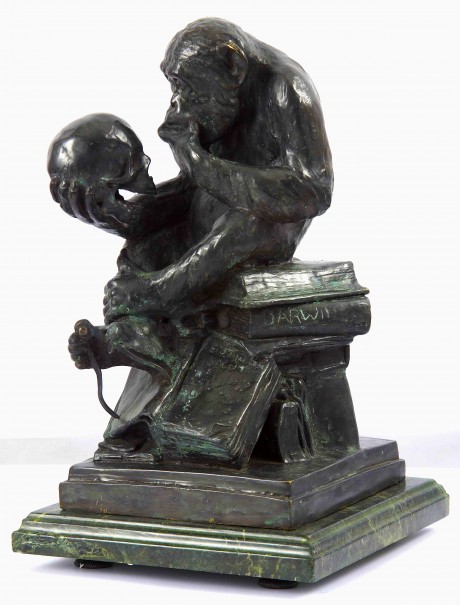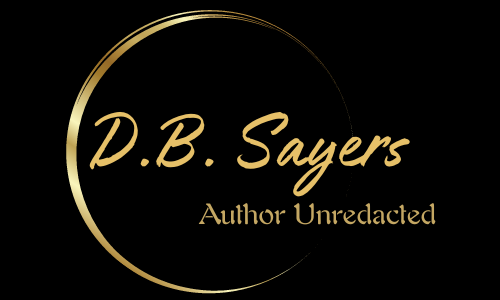Humans...the rational animal?
I don’t remember the first time I heard being human characterized as being “the rational animal.” Aristotle, it is said, argued that man is “a creature distinguished by a rational principle.” Note that Aristotle himself doesn’t say man is rational. Rather he stated that humans are distinguished by a rational “principle.” I could be wrong, but I interpret that distinction as making it clear the philosopher was aware of humans’ flawed capacity to live up to their loftiest principles.

Would anyone alive today—at least anyone paying attention—subscribe to the notion of rational behavior being a universal characteristic of genus Homo Sapiens? I suspect most of us would quickly (and perhaps emphatically) acknowledge that most of us a capable of—if not prone to—irrational behavior at some point (or points) in our lives.
That acknowledged, what scientific method and Aristotelian logic have added to our greater if imperfect understanding of the world is profound. And implicit in that understanding is the justifiable conclusion that we are unusual, if not unique. Our attempts at rationalism and civilization, how imperfect, have elevated the quality of life for much of humanity. It has also given rise to an almost tortured awareness in some of us how wide the gulf between our loftiest principles and our actual behavior.
Our Heads in Heaven—Our Feet in Hell?
However inspiring the saga of our rise from Sahelanthropus to where we are today, our most sober understanding of humans’ essential nature must begin with a recognition that we are no less a product of our instincts and survival urges than the animals we study and with whom we share so much in common.
Are we ever more intellectually honest with and about ourselves than when we confront what we’re capable of, our high-minded thoughts notwithstanding? Individually and collectively, we are prisoners of our mortality and our essential organic nature. We are driven by passion, lust, and (in too many cases), our bottomless acquisitiveness and (at the same time) the ambition to be “better,” whatever that means to us personally.
For some, the recognition of our failures to live up to our highest principles seduces us to the conclude that pursuit of self-interest is the only intellectually honest course. It’s understandable. The cognitive dissonance of our own shortcomings can shatter our illusions. So, if we can’t always live up to our highest expectations, why bother?
Others see the same disconnect but rather than viewing it as an excuse to hedonistic abandon, they wallow in ascetic self-flagellation as though by so doing, they might purge themselves of their “worst” instincts. I probably don’t need to name names. Most everyone has a friend or two who really wants to do “X,” a comparatively harmless self-indulgence, but passes, for fear of slipping into licentiousness. I’m reminded of a line in the tongue-in-cheek Song of the Temperance Union:
“We never eat fruitcake ‘cause it contains rum; and one little bite turns a man to bum;
Now can you imagine a sorrier sight; than a man eating fruitcake until he gets tight.”
Most of us recognize that comparatively few of our brothers and sisters are perfectly adapted to the plethora of social structures making up “civilization.” And most of us, eventually confront situations awakening either our survival instincts or our more primitive sexual lusts. If we’re paying attention, most of us are painfully aware of how thin the veneer we call civilization is. The sleeping anarchic animal awakens, enabling our worst instincts. Cultural nihilism, Social Darwinism, Fascism are often the result.
Evolution…a long arc?
Most of us, however, learn to accept that the “civilized” human in us also sleeps with the eternal savage. And aren’t most of us both? This is less contradiction than paradox. We evolve, but that evolution is so gradual that the savage inside us persists. Not unlike our wisdom teeth who still plague us long after the need for them has passed.
Shame, guilt at a dark, bloody past is understandable, as our sensibilities grow to embrace our essential kinship with all life. But for the same reason we should strive to move beyond that bloody past, we must also place it in its context. It is a lesson—not an eternal sentence. Growth is not the absence of error. It is the recognition of our inherited animal nature perpetually at war with our “better angels.”
We can (and many of us do) obsess over social ills like patriarchy, late-stage capitalism, or even our own persistent sexual appetites. All the foregoing seem to resist our efforts move past them collectively, or in the latter case, our own ability to cohere to whatever society considers “acceptable” in our time.
But doesn’t it make more sense to strive for informed, rational choices about what works in our contextual reality? And at the same time, to recognize that we’ll never achieve perfection and don’t need to in order to be good humans striving to grow and get better? Evolution isn’t instantaneous or even necessarily visible in our lifetimes. Sahelanthropus, the first recognizably humanoid found to date, lived approximately 5 million years ago. The moral of the story? Neither history nor evolution care about our flaws, timetable or impatience. We should give ourselves—and each other—a little more of a break.
D.B. Sayers is a retired Marine Lieutenant Colonel, reformed corporate drone turned full-time author with six titles in print with three more works in progress in the queue.

I like your take on this.
Thanks for stopping by and taking the time to read, Bree.
Dirk
I have read some excellent stuff here Definitely value bookmarking for revisiting I wonder how much effort you put to make the sort of excellent informative website
Thanks for stopping by and bookmarking, Breanne. Come back any time…
d
I like the helpful thoughts you provide in your articles.
Thanks, Martine. Make it a great day!
Awesome! This is a genuinely remarkable post. Looking forward to more from you.
Thanks, Lesly. I appreciate the praise.
I am truly thankful for this fantastic piece of writing. Looking forward to reading more of your work.
Thanks, Marco. Appreciate the kudos. Make it a great day.